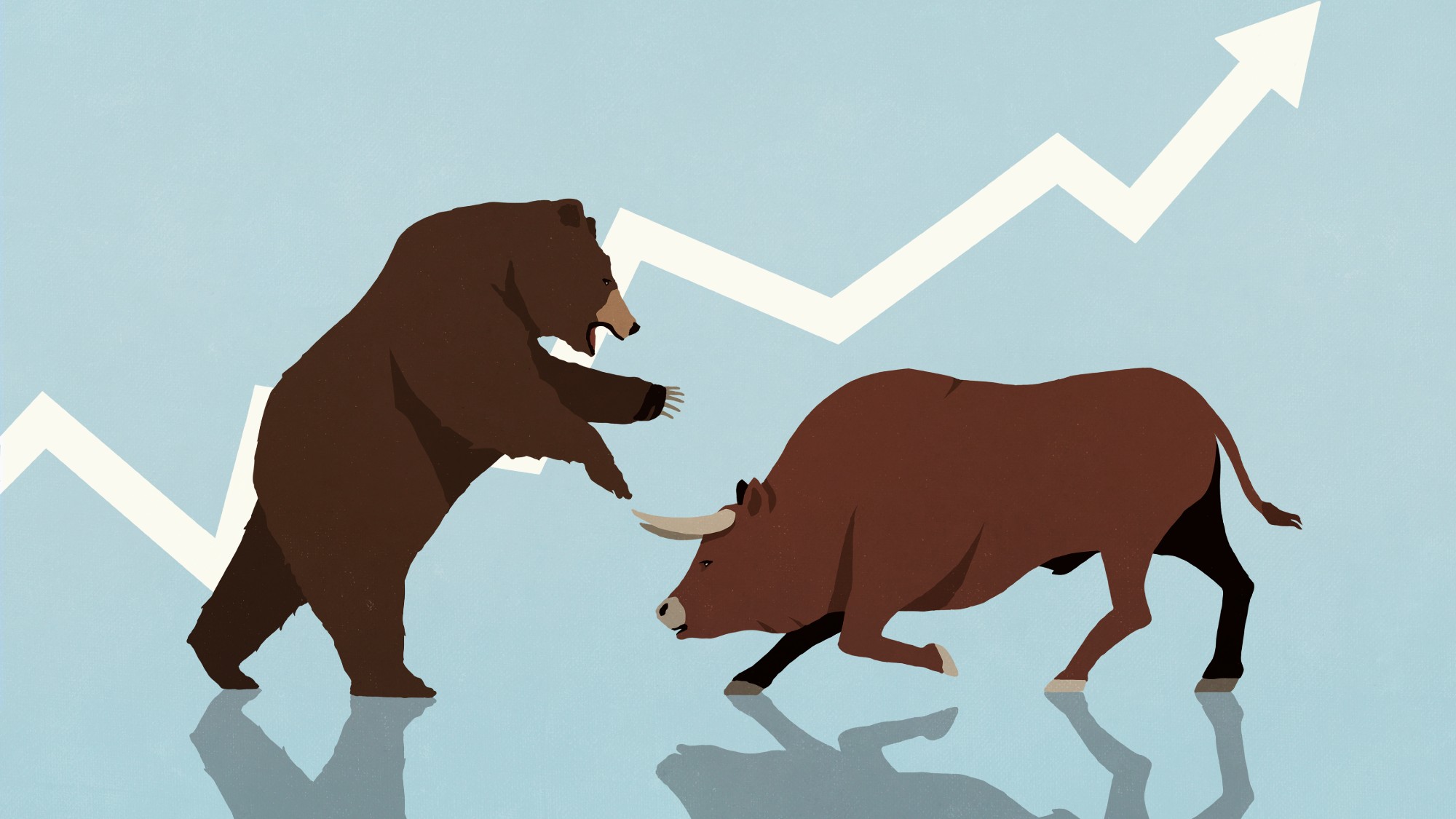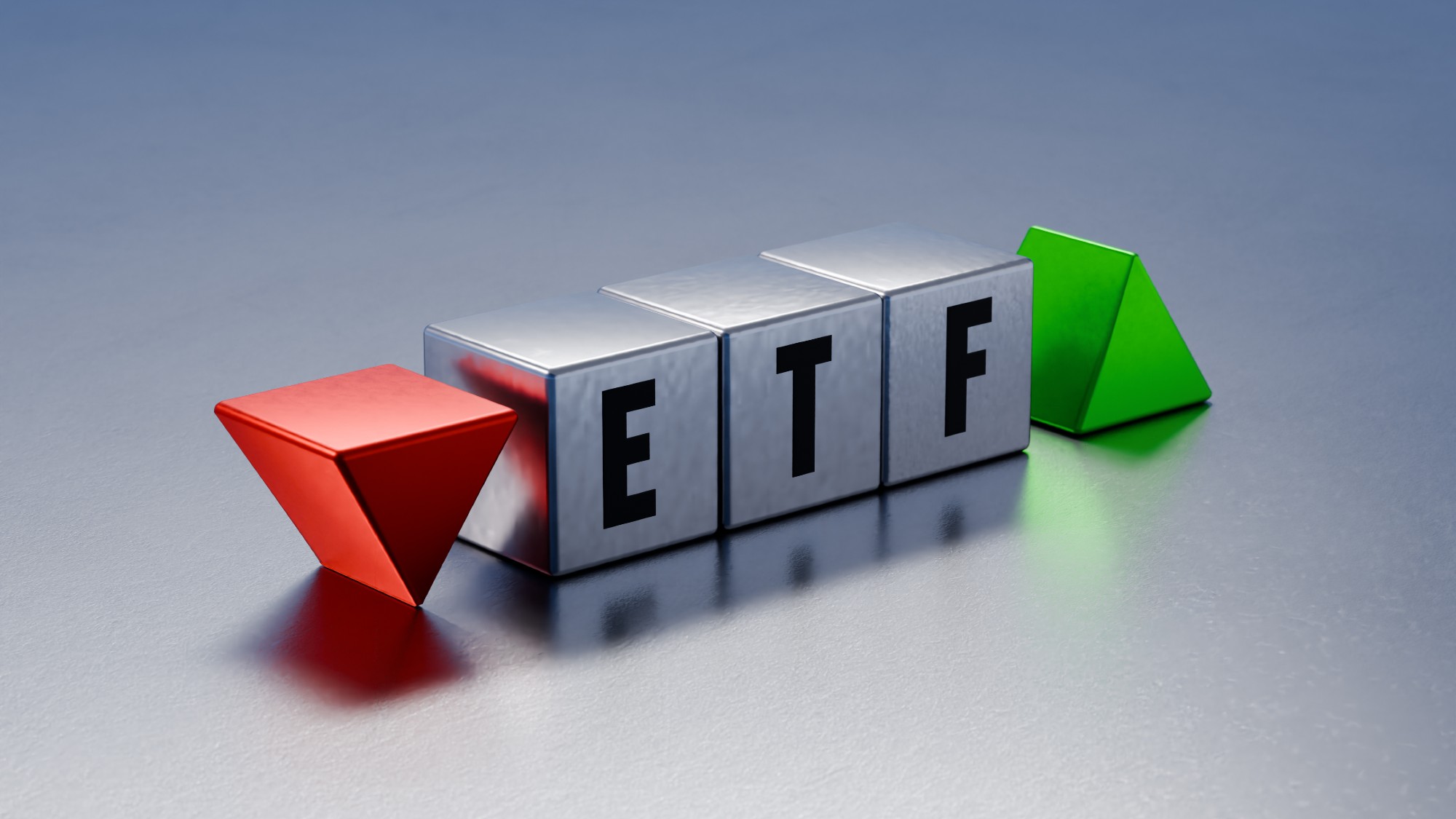How to spot a poorly performing investment fund
The best ways to monitor your investment portfolio

A free daily email with the biggest news stories of the day – and the best features from TheWeek.com
You are now subscribed
Your newsletter sign-up was successful
Investing is a great way to build wealth so you can save towards major expenses such as a mortgage, or for your retirement.
It is important to check on your investment portfolio occasionally, explained Hargreaves Lansdown, when your investment objectives change “or if there have been some big changes in the markets”.
This is particularly true in the current climate as economic uncertainty such as high inflation, rising interest rates and war in Ukraine have been causing “turbulence” on the financial markets, said MoneyWeek, “potentially denting the returns enjoyed from certain funds”.
The Week
Escape your echo chamber. Get the facts behind the news, plus analysis from multiple perspectives.

Sign up for The Week's Free Newsletters
From our morning news briefing to a weekly Good News Newsletter, get the best of The Week delivered directly to your inbox.
From our morning news briefing to a weekly Good News Newsletter, get the best of The Week delivered directly to your inbox.
Here is how to keep an eye on your investment portfolio.
Performance figures
All investment funds will provide documents such as fund factsheets and value-assessment reports that outline their performance over a set period.
Historical returns “shouldn’t be a guide” to future performance, said The Times Money Mentor, but can be an “important gauge of whether a manager has delivered or not”.
Websites such as Trustnet and Morningstar also show how funds have performed compared with their own sector or benchmark.
A free daily email with the biggest news stories of the day – and the best features from TheWeek.com
Keep an eye on the commentaries accompanying this data, said Investors’ Chronicle, as “big moves in and out of different investments” may indicate problems while a change in style may mean the fund “no longer serves its chosen purpose”.
Analyst reports
Some financial firms also produce regular reports that highlight good and bad performing funds.
One of the best known is investment platform Bestinvest’s Spot the Dog report, which “lists the bad mutts of the fund management industry”.
The report highlights funds or “dogs” that have failed to beat their own benchmark over three consecutive years by 5% or more.
Its latest report showed the number of dog funds rose from 44 to 56 and, the assets in those “misbehaving mutts” increased to £46.2 billion from £19.1 billion.
Similarly, Chelsea Financial Services publishes a regular RedZone report that “names and shames” the funds that have underperformed their sector average for three years in a row.
It’s generally seen as a “bad idea” to sell a fund based on poor performance alone, said interactive investor. But it “may make sense” if the fund manager shows no sign of taking action.
Do your research
You can’t rely only on performance tables, said MoneyToTheMasses, as “no fund manager outperforms in every market condition”, but investors need to find the best funds to invest in “for the current environment”.
Different fund managers perform well in different circumstances, explained Willis Owen, and as time goes on, “your position and those of your investments will change”.
That makes it all the more important to understand how a fund is managed, said Charles Stanley, as well as knowing the reasons why it has performed the way it has and “what conditions it will likely perform best in going forward”.
Be careful about too many changes though. People invest for the long term, said Hargreaves Lansdown, so you shouldn’t be worried about what happens to the share or bond price “today or tomorrow”.
If investors stick to their long-term plan, they can avoid making decisions regarding their investments simply as a result of what is happening in the present.
As a “rule of thumb”, said MoneySavingExpert, five years typically gives “enough time to ride out any bumps in the market”.
Also, keep an eye on fund charges, said Which?, as while fund performance can vary, you’ll have to pay the charges “come rain or shine”, which can make a “huge difference” to your returns.
Marc Shoffman is an award-winning freelance journalist, specialising in business, property and personal finance. He has a master’s degree in financial journalism from City University and has previously written for FTAdviser, ThisIsMoney, The Mail on Sunday and MoneyWeek.
Marc Shoffman is an NCTJ-qualified award-winning freelance journalist, specialising in business, property and personal finance. He has a BA in multimedia journalism from Bournemouth University and a master’s in financial journalism from City University, London. His career began at FT Business trade publication Financial Adviser, during the 2008 banking crash. In 2013, he moved to MailOnline’s personal finance section This is Money, where he covered topics ranging from mortgages and pensions to investments and even a bit of Bitcoin. Since going freelance in 2016, his work has appeared in MoneyWeek, The Times, The Mail on Sunday and on the i news site.
-
 Munich Security Conference: a showdown between Europe and Trump?
Munich Security Conference: a showdown between Europe and Trump?Today’s Big Question Report suggests European leaders believe they can no longer rely on the US for military support – but decoupling is easier said than done
-
 The Week Unwrapped: Have televised confessions quelled protests in Iran?
The Week Unwrapped: Have televised confessions quelled protests in Iran?Podcast Plus, why has Elon Musk turned from Mars to the Moon? And will the BBC prove to be a puzzles champ?
-
 The week’s best photos
The week’s best photosIn Pictures An Andean god, a rogue squirrel, and more
-
 Received a windfall? Here is what to do next.
Received a windfall? Here is what to do next.The Explainer Avoid falling prey to ‘Sudden Wealth Syndrome’
-
 How to invest in the artificial intelligence boom
How to invest in the artificial intelligence boomThe Explainer Artificial intelligence is the biggest trend in technology, but there are fears that companies are overvalued
-
 What’s the difference between a bull market and bear market?
What’s the difference between a bull market and bear market?The Explainer How to tell if the market is soaring or slumping.
-
 Is it a good investment to buy a house?
Is it a good investment to buy a house?The Explainer Less young people are buying homes, opting to rent and invest in the stock market instead
-
 What is day trading and how risky is it?
What is day trading and how risky is it?the explainer It may be exciting, but the odds are long and the risks high
-
 What to know about investing in ETFs
What to know about investing in ETFsThe Explainer Exchange-traded funds can be a great choice for beginners
-
 Retail investors drive a flurry of IPOs
Retail investors drive a flurry of IPOsFeature After years of slowness, companies like Klarna and Gemini are reviving the IPO market
-
 Is hands-off investing the way to go?
Is hands-off investing the way to go?The Explainer In many cases, your money might be better off left alone